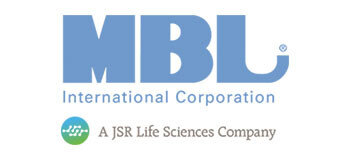IL-18, is known as the IFN gamma-inducing factor, and as a proinflammatory cytokine, a member of the IL-1 family. Initially it is produced as an inactive pro-form and then secreted following maturation by caspase-1. IL-18 binds to the IL-18 receptor α (IL-18Rα) expressed on the surface of various cells (Kupffer cells, activated macrophages, keratinocytes, intestinal epithelial cells, osteoblasts, adrenal cortex cells and murine diencephalon) leading to inflammation. IL-18 also acts on T helper type-1 (Th1) T cells and in combination with IL-12 strongly induces them to produce IFN-γ. IL-18 has pleiotropic effects from enhancement production of IFN-γ and GM-CSF in peripheral blood mononuclear cells to production of Th1 cytokines, IL-2, GM-CSF and IFN-γ in T cells as well as the enhancement of Fas ligand expression by Th1 cells. Consequently, researchers are exploiting these regulatory processes for anti-tumor immune responses as IL-18 enhances antitumor immunity in various cancer types. The powerful activity of IL-18 in tumor models has emphasized the great attraction of IL-18 pathway as a target for tumor immunotherapy.
Researchers take advantage of MBL International recombinant IL-18 to activate varying cells like peripheral blood cells, macrophages, NK cells and T cells to identify targets.
For ex vivo studies, MBLI provides formulation without BSA. In addition, we offer other IL-18 products, in turn, we have become a trusted leader in IL-18 research worldwide.
Product Highlights:
| Article number | Product description | Size |
| B004-2 | Recombinant Mouse IL-18 (Without BSA) | 200 μg |
| B004-5 | Recombinant Mouse IL-18 (Without BSA) | 25 μg |
| B003-5 | Recombinant Human IL-18 (without BSA) | 25 μg |
| B003-2 | Recombinant IL-18 (without BSA) | 200 μg |
References
- Ohya, Takashi, et al. “Impaired Interleukin‐18 Signaling in Natural Killer Cells from Patients with Systemic Juvenile Idiopathic Arthritis.” ACR Open Rheumatology, vol. 4, no. 6, 2022, pp. 503–510., doi:10.1002/acr2.11426.
- Wang, Zhen, et al. “Interleukin-37 Promotes Colitis-Associated Carcinogenesis via SIGIRR-Mediated Cytotoxic T Cells Dysfunction.” Signal Transduction and Targeted Therapy, vol. 7, no. 1, 2022, doi:10.1038/s41392-021-00820-z.
- Tsutsuki, Hiroyasu, et al. “Subtilase Cytotoxin from Shiga-Toxigenic Escherichia Coli Impairs the Inflammasome and Exacerbates Enteropathogenic Bacterial Infection.” IScience, vol. 25, no. 4, 2022, p. 104050., doi:10.1016/j.isci.2022.104050.
- Stone, Deborah L., et al. “Excess Serum Interleukin‐18 Distinguishes Patients with Pathogenic Mutations in pstpip1 .” Arthritis & Rheumatology, vol. 74, no. 2, 2022, pp. 353–357., doi:10.1002/art.41976.
For Research Use Only. Not for use in diagnostic procedures.





